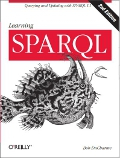I've given several talks on preparing strategies for the ebook market, and one key point is the value of early prototyping. epub format ebooks are good for this because they're easy to make and fit well into the increasing use of agile software development practices in the publishing world. (Other formats aren't very difficult to create either, and as we'll see, may be worth including in your prototyping efforts.) You can put something together, show it to your management and customers, get their feedback, make tweaks to reflect the feedback, and continue this cycle as you refine the look and feel of your ebook.
"Showing it to your customers", however, is easier said than done. How do you go about this? The important thing to remember (and to be honest, this all applies to nearly any new electronic delivery medium, not just ebooks) is that while ebooks may not be something you can charge customers money for, they still have value that can help you make money. For example, you can:
Give away an ebook version of a book with the hardcopy version. As with the registration of a product, this can add a customer to a mailing list, and it acclimates them to ebook use, which a lot of publishers are interested in doing as they compare the costs of producing and distributing ebooks with the costs of producing and distributing hardcopy bound books.
Give away ebooks with only the first few chapters of a title to motivate customers to buy the complete hardcopy book. You can combine the beginning of several books into a new product sampler, as record companies have done for years.
Give away ebooks as an incentive for subscribing to a product for a longer period of time—for example, you could offer subscribers a free ebook with a two-year subscription to a product, but not with a one-year subscription. If you're a magazine publisher, the book could compile the work of a particular author, or pieces from a particular section of the magazine such as recipes, travel writing, contemporary reviews of classic movies of the 1970s...
Give away ebooks as an incentive to fill out surveys. Detailed customer surveys take time to fill out, and you don't just want to know about the buying habits of customers with a lot of time on their hands. The inclusion of a free ebook at the end of a survey could help to accumulate more valuable survey data.
Give away ebooks with public domain material related to your product line. (It looks like Penguin is already doing this.)
To be honest, this all applies to nearly any new electronic delivery medium, not just ebooks.
Even if you don't use ebooks as incentives for filling out customer surveys, most of these ideas will help you gather data that helps you develop an ebook strategy. Making ebooks available in multiple formats will eventually give you ideas about which formats are more popular with your potential customers. You can also see which content classes (recipes? reference material? humor? technical content? serial fiction?) are more popular with your potential ebook readers.
Along with whetting your audience's appetite for new titles in more traditional media, free ebooks can also help you explore their appetite for older titles. Publishers who've been around for a while often have a large backlist of content that isn't valuable enough to print, bind, store, and ship, but still has enough accumulated long tail value that it can drive revenue if the production costs are low enough. With ebooks, those costs are pretty low.


Penguin isn't giving ebooks with public domain add-ins away, they're (improbably) going to (try to) charge $8 for them.